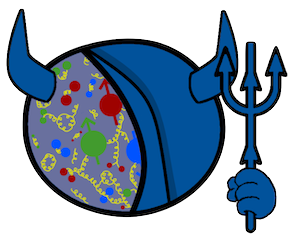Speaker
Description
Constant current continuous wave Nuclear Magnetic Resonance (NMR) has been an essential tool for solid-state polarized target experiments in Nuclear and High-energy physics. Q-meter based phase-sensitive detection can provide accurate monitoring of the polarization over the course of a scattering experiment but is frequently limited by significant noise and systematic errors that arise during the data taking. In this talk, we present recent studies of improved signal-to-noise in NMR-based polarization measurements as well as reliable measurements outside of the originally designated range of the Q-meter’s operational parameters with the use of machine learning (ML). This approach will provide improved real-time online polarization monitoring and offline polarization data analysis for an increased overall figure of merit in the scattering experiments.

